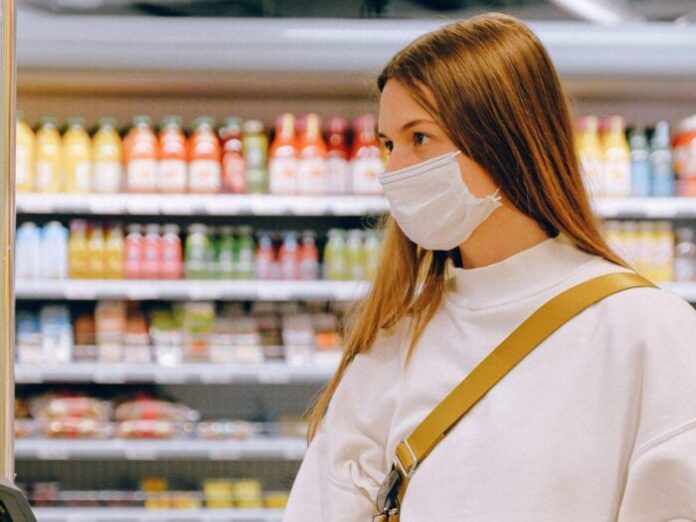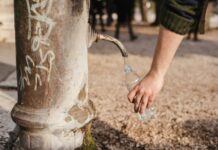
To exit the health emergency caused by the spread of coronavirus it is essential to wear personal protective equipment such as masks. Therefore, it is good to know the various types on the market to orient yourself in purchasing.
Washable cloth masks – The most ecological solution, which prevents the new form of pollution that is spreading all over the world, are the cloth masks. They are the easiest to find, made of fabric, are washable and reusable several times, avoiding waste and the accumulation of waste which must then be properly disposed of. These masks are certainly not the safest, as they are not equipped with a filter, but guarantee a minimum of protection, allow you to breathe easily and prevent the propagation of potentially contagious droplets.
The only caveat is to wear them correctly, making them adhere to the face and completely covering the nose and mouth. These masks, like all the others except the PPE ones, can be used to go out but always respecting the safety distances and all the hygiene prevention prescriptions indicated by the World Health Organization.
Since the pandemic began, many companies have converted their production by starting to make cloth masks in various colors and fabrics. The most common are certainly those of cotton, but it is also possible to find them in hemp and bamboo, which are decidedly more eco-friendly. Also pay attention to the thickness. When choosing a fabric mask, in fact, it is good to make sure that they are not excessively thin or wide because this greatly reduces their effectiveness.
It is possible to wash all the masks in fabric by hand by adding a sanitizing additive to hot water, or in the washing machine at 60 °. They must not be ironed in order not to damage the fabric and must not be put in the dryer. If they are worn for many consecutive hours or in environments with a high risk of infection, they must be disinfected every evening. If, on the other hand, they sell, they are used only for a short time, such as for shopping, you can wear them 3-4 times before washing them. After each use they must be placed in their plastic bag, avoiding that they come into contact with other surfaces.
Filter Masks – This is a new type of mask recently on the market, it is made of fabric and combines filtering capacity, comfort and environmental sustainability. This type of mask, in fact, is equipped with replaceable filters lasting 12 hours that can be easily changed. The mask, on the other hand, can be washed comfortably by hand with warm water and neutral soap or in the washing machine. It is built in three different overlapping layers of fabric and uses breathable nanofiber, ensuring a bacterial filtering capacity and harmful fine dust equal to 95%. Each of the three layers of the filter mask forms an advanced mechanical barrier against micro particles, to protect the wearer and those around them.
Surgical masks – They are the most common ones, with a classic light blue color, worn by doctors and dentists. They consist of two or more layers of non-woven fabric (Tnt) made of polyester or polypropylene fibers and are disposable. These masks filter the outgoing air very well but do not do the same with the inlet ones and for this reason they are called “altruistic”. They have an external filtering capacity of 95% so those who wear them can hardly infect others, but they are only 30% effective against the virus coming from the outside. If you choose this type of mask, you must pay attention to the certification, which must guarantee breathability, bacterial filtration and resistance to liquid splashes.
These types of masks are disposable so once they become wet, after about 4 hours of use, they must be disposed of. However, indications have been disseminated on how to sanitize them with sanitizing substances or water vapor in order to reuse them for a few days. At the end of their life, they must be thrown away and not left lying around or thrown on the street, as has often been the case in recent weeks.
FFP3 and FFP2 masks – Medical personnel wear them in hospitals. They are considered PPE (personal protective equipment), and for this reason they guarantee a high filtering capacity of the inhaled and exhaled air. The progressive numbering (FFP1, FPP2, FFP3) indicates precisely the progressive air filtering capacity of the different types of device. The abbreviation FFP stands for “facial filters for individual protection” and indicates that the mask was produced in compliance with the European standard EN 149-2001 which sets the standards of efficiency, breathability, stability of the structure, as well as the technical tests of biocompatibility and the performance of the masks.
N95 and KN95 masks – These masks have been produced and certified in China (KN95) and America (N95) according to quality standards similar to those that certify European FFP2 masks, but not identical for this reason it is necessary that the CE mark has been affixed.






































